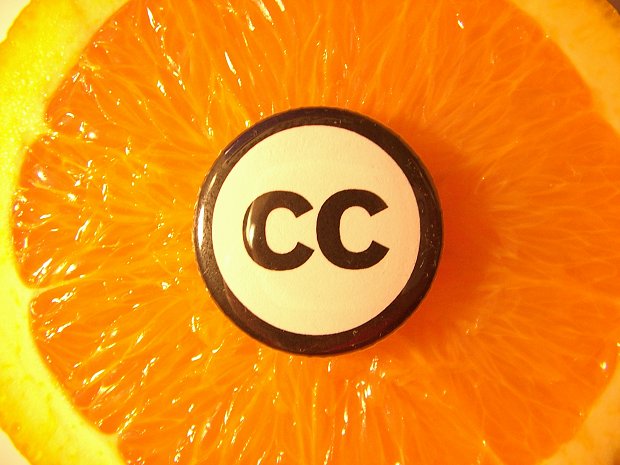 Photo by Yamashita Yohei
Photo by Yamashita Yohei
Throughout my college career, I was able to do some really great research. One project I did was a study on the state of copyright in music – namely in sampling. At the time, mashups were incredibly popular, so sampling was a hot topic. A lot of artists were upset that their music was being used for free in these mashups, while others kind of dug it.
While a lot of other cool, music-history-nerd stuff was learned (i.e., how blues artists often shared each other's work, and Biz Markie and Mickey Mouse's role in modern copyright law – Google it), one really cool topic I stumbled upon was Creative Commons.
What most folks don't know is that the current state of copyright law is very young – a couple of decades, which is pretty new for laws, at least. With the digital age, copyright has had to shift and evolve, especially in terms of digitally based music. Creative Commons strives to bridge that gap by offering various levels of its copyrights.
When artists go to copyright their music, they can choose from three main types of licensing options:
- Attribution – This allows others to remix, tweak, and build upon your work, as long as they credit you for the original creation. This (or its derivatives) has been used by folks such as Radiohead and Beck when they asked fans to remix their own work.
- Attribution: Non-commercial – This is the same as above, but your remix or tweak cannot be used for commercial purposes.
- Attribution: Share-alike – This means you can release your remix commercially, but the licensing terms of the original work have to be the same.
While these are the main three, each has more derivatives that mainly rely on whether you can release the work commercially or not. (For the full list, visit the CC website.)
So, in a nutshell, Creative Commons allows you to publish your music in a way that's more flexible than the standard copyright. But how can it help you as an artist? Here are a few suggestions that have helped my friends, clients, and musician buddies.
1. Find samples and inspiration
If you're an EDM or hip-hop artist (or any other artist who wants to use samples), this could mean great things for you! There are plenty of Creative Commons libraries with work that's sample-free, so you can release that sample on your EP or album without getting a nasty cease and desist letter. And don't think it's just no-names doing this Creative Commons thing – you can find major artists who have great instrumentals, vocal tracks, and entire songs that you can remix and remaster to fit your work.
2. Get your work noticed
Not only can artists find samples for their work, other artists can put up their own work to be sampled. This is a great way to bring your work into new genres and be seen by new folks.
Creative Commons doesn't necessarily mean that your music can only be used in remixes for free. There are still structures that allow your work to be used for a fee. So, in other words, your work still can be remixed, and you can get some money from it. This is a great way to attract folks to work with your tracks.
3. Protect your work
Again, in the theme of Creative Commons and its flexibility, this allows you to file your work in the way that you want. So maybe you don't want it remixed at all – there's a license for that. Or you want it remixed but not commercially – there's a license for that, too.
Creative Commons will work with you to best support and protect your art. I hope you do your research and find what license (if any) will work for you. Also, I'm not a lawyer; I'm just a guy who has had clients license their stuff through Creative Commons with much success. So consult with your music attorney to get the best deal for your work and its usage.
As a music marketing strategist, Tyler Allen works with an extensive array of artists, labels, music tech, and music retail entities. Tyler began his music industry career with Sony Music Entertainment and RED Distribution, as well as the advertising industry. He is dedicated to giving veteran artists the tools to preserve their legacy, and new artists the tools to begin theirs (as well as everything in between). Learn more at wtylerconsulting.com.







